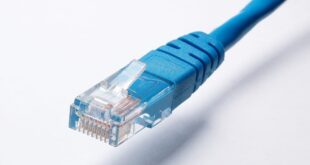Keeping Hackers at Bay: How to Protect Yourself from Cybersecurity Threats
Introduction
It is no secret that cyberattacks have become an everyday challenge that everyone, from large businesses to individuals, must face. Hackers pose a significant threat to users’ online safety and often cause untold damages, including identity theft, financial loss, and data breach. But many people are uninformed about the best approaches to protect themselves against these attacks. This article offers tips and tricks on how to stay one step ahead of hackers and reduce the risks of a cybersecurity breach.
Stay Vigilant against Scammers
Most hackers use modern tricks to lure individuals into downloading malicious softwires. Often, you receive random emails disguised as password reset notifications or security updates from trusted companies like Uber, PayPal, Apple, Amazon, etc. The emails feature attention-grabby subject lines, logos, color schemes and request sensitive information or urge you to click a link so the sender can photograph images or steal passwords. Stay extra careful against such emails, and make sure to know the importance of SSL (Secure Sockets Layers) in keeping hackers from accessing your sensitive information. For example, financial institutions utilize anonymous, live-cam-encrypted SSL to push encrypted communication between you and your bank which make transactions more safe secure.
Use Strong Passwords
Using robust passwords will prevent hackers from accessing your devices, whether it’s your phone, computer, tablet, or email accounts. While 12345 may be catchy, shortcuts like these don’t hack it. Here are some good barometers as far as creating durable passwords are concerned, also – combining random numbers, symbols, both lower-case and upper-case letters. It’s best if passwords should be long, unguessable, and unique; this way even if a password leaks hacker attackers won’t find it easy cracking it. Remember that the longer your passwords, unique and unpredictable ascii character combination bars are which hackers or third parties can not foresee.
Activate Two-Factor Authentication
Another way to secure your data is to use Two-Factor Authentication (2FA). This is a technique used by security-conscious businesses to enhance login. Two different pieces of proof are required to enter. One often involves verifying a unique verifying code sent to your SMS or email, while the other is called a “form feature,” such as a fingerprint scan or facial recognition. Once 2FA is active for your device or account, a cyberthreat actor would need to unfurl an encryption algorithm separate from your 2FA setup in order to break it.
Install The Right Tools
Firewalls go a great distance in keeping intruders at bay and serving sort an important central layer between your internet connection and several devices. email applications themselves, alone, such as Kaspersky, Norton, are also valuable resources to boosting your security level where, acceptable internet providers like your bank bring in multiple layers of login reminder notes and SMS-based transaction confirmations to ensure secure transactions respectively. Additional steps such as virtual private networks (VPNs) and spam filter are other ways to enhanced your anodized devices all together.
As we have covered in this article, hackers can face various weak points of id, privacy settings or security demeanor, security insurance measure are the way go. Staying vigilant, using Secure Sockets Layer encrypted browsers, utilizing two-factor authentication, robust passwords, or adequate security software with encryption and network security combos goes a long way toward keeping cyberhounds at bay.
The possibilities opening credit fraud alerts, encrypting or separating your logins between multiple cyber platforms in addition or say seperating your home internet wireless. Any of these proactive and contact-based means will grant cushioning between you and material data preservers of institutional attack forcing criminals to spamming or trying with someone else. While no evidence nearly only cyber best practices may render you invulnerable, improving and learning the strengths between endpoints networks gateway lanes of attack, in the end of head-to-head periods, the more resilient you will be moving forward, competitively or personally-online.
 Mind Uncharted Explore. Discover. Learn.
Mind Uncharted Explore. Discover. Learn.




